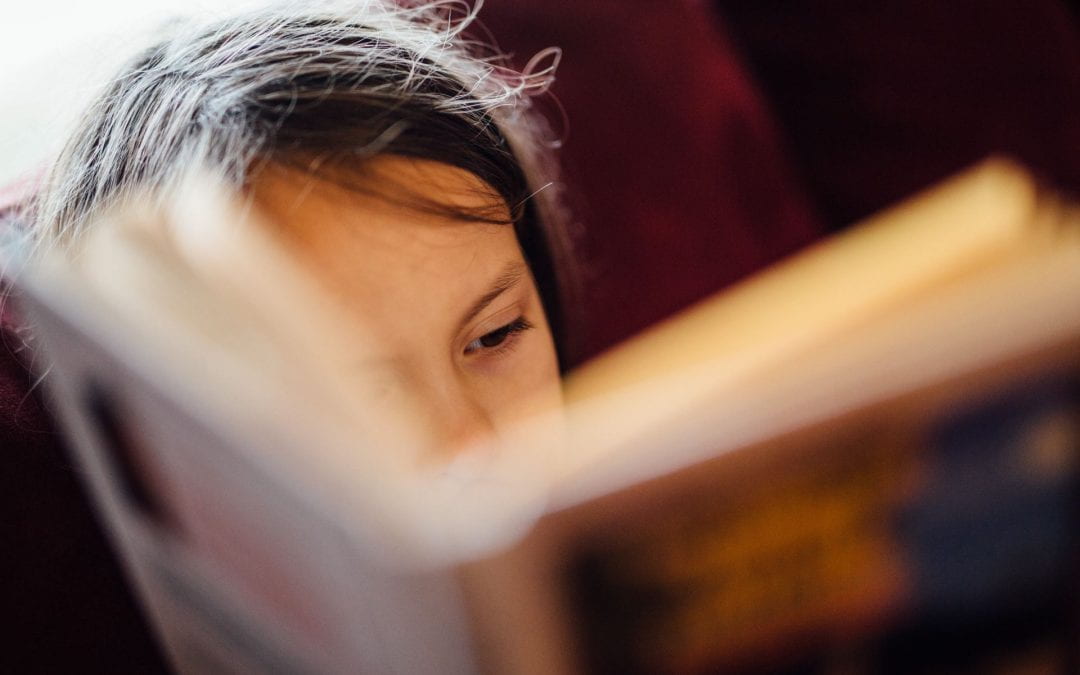An innovative literacy programme is being rolled out to the nation’s schools this year as part of the Ministry of Education’s major new initiative to improve literacy outcomes for all New Zealand children.
The Better Start Literacy Approach (BLSA) is an integrated approach to teaching and assessing phonological awareness, vocabulary, listening, spelling, writing and reading skills in the first year of learning.
It is based on years of research and work, and developed with funding from A Better Start National Science Challenge. It is led by A Better Start’s Deputy Director Professor Gail Gillon and Successful Learning theme leader Professor Brigid McNeill.
Here, Professor Gail Gillon speaks to the Education Gazette about the BLSA programme:
New Zealand, like many countries in the world, has educational inequities that we are working hard to eliminate. We know early literacy success is a powerful protective factor and leads to lifelong education, health and economic advantages. Change is needed however, at a systems level to ensure literacy success for all.
The factors that lead to educational inequities are complex. A multifaceted approach is therefore necessary if we are to achieve sustained improvements in children’s literacy outcomes that can result in intergenerational benefits.
What is the Better Start Literacy Approach?
The Better Start Literacy Approach is an integrated classroom literacy programme for Year 0-1 classrooms to support children’s early reading, writing and oral language success.
It incorporates vocabulary development using quality children’s story books, structured teaching of critical phonological awareness skills and letter-sound knowledge through fun and game-based activities, activities making explicit links to the reading and spelling context, and structured small group reading sessions using the new Ready to Read Phonics Plus texts.
The Better Start Literacy Approach follows a phonics scope and sequence that is used in the class and small group reading sessions.
New approach needed
We developed a Better Start Literacy Approach as one aspect of the change that is necessary for improved longer-term literacy outcomes. The approach is based on findings from our previous successful phonological awareness and oral language intervention studies here in New Zealand, together with robust international research findings.
The approach incorporates research related to culturally responsive practices and knowledge of facilitators of success for Māori, as well as findings from the Pacific Islands Family Study (AUT Pacific Health Research Centre).
Strengths-based framework
Central to the Better Start Literacy Approach is a strengths-based framework focusing on what children can achieve and then identifying their next steps for learning. We advocate for a collaborative approach with literacy specialists, teachers, and whānau working together to enhance children’s early literacy success.
While Professor Brigid McNeill and I have led the development of the Better Start Literacy Approach, it has involved a talented team of researchers from Canterbury, Otago and Auckland Universities, advisors including Professors Angus and Sonja Macfarlane, Tufulasi Taleni, Mel Tainui (University of Canterbury), Professors Bill Tunmer and James Chapman (Massey University), as well as international advisors.
Many aspects of the approach were co-constructed with class teachers and we have continued to improve and adapt the approach over the last five years based on teachers’, whānau and children’s feedback.
Successful pilot
We successfully piloted the Better Start Literacy Approach in seven lower decile schools in Christchurch as part of the A Better Start: E Tipu e Rea National Science Challenge (2015-19), funded by MBIE and hosted at the Liggins Institute, University of Auckland.
The approach proved successful in significantly accelerating phonological awareness, vocabulary knowledge, word reading and spelling in 5- to 6-year-old children, compared with other types of early literacy instruction.
The approach proved particularly useful for children entering school with lower levels of oral language. Improvements were evident for all genders and ethnicities and the skills of tamariki who identified as Māori or Pacific Island (45.5 per cent of the cohort) improved in similar ways to children who identified as New Zealand European.
Importantly, the trials showed that, using a response to intervention framework where children’s progress is carefully monitored and where class teachers are provided with appropriate levels of support, we can significantly increase the number of children succeeding in their early reading and writing attempts.
Replicating findings
We have now replicated these early findings with a range of new entrant/Year 1 classrooms in Christchurch and Auckland schools through the Ministry’s Innovative Foundational Learning contract.
The approach includes a range of class and small group activities as well as whānau workshops. We have now embedded the new Ready to Read Phonics Plus series into the approach. This is a great addition to help children apply their growing phonological awareness and vocabulary knowledge into the connected text reading process.
The Better Start Literacy Approach also includes novel online monitoring assessments in phonological awareness, oral language (children retelling a story), word reading as well as spelling and connected text reading. The assessments provide teachers with detailed data to celebrate with whānau children’s progress as well as identify next steps for learning.
Micro-credentials developed
Micro-credential online courses have been developed to support literacy specialists, teachers and teacher aides implement the Better Start Literacy Approach. Details can be found here https://www.canterbury.ac.nz/study/online/betterstartliteracyapproach/
Applications for funding for these courses can be made through the Ministry of Education PLD website https://pld.education.govt.nz/
READING RECOVERY EVALUATION
This report presents a summative process and outcome evaluation of Reading Recovery in New Zealand. An overview of the findings, evaluative judgements and considerations is presented in Section 4. This evaluation was a rapid review conducted from April to July 2019. There was insufficient data available to support an economic evaluation at that time.
EARLY LITERACY RESEARCH PROJECT
The purpose of this longitudinal research project was to improve the literacy outcomes of new entrant children during, and beyond, their first year of school. Through a series of training workshops and associated materials, teachers were assisted to identify and respond to the specific literacy needs of children. The workshops provided teachers with the knowledge and skills to adopt explicit and systematic word-decoding teaching strategies in their literacy instruction.
For more information on the Better Start Literacy Approach trials, see here:
- https://link.springer.com/article/10.1007/s11145-018-9933-7(external link)
- https://www.betterstartapproach.com/(external link)
- https://www.betterstartapproach.com/our-research(external link)
Article courtesy of the Education Gazette | Tukutuku Kōrero, gazette.education.govt.nz


